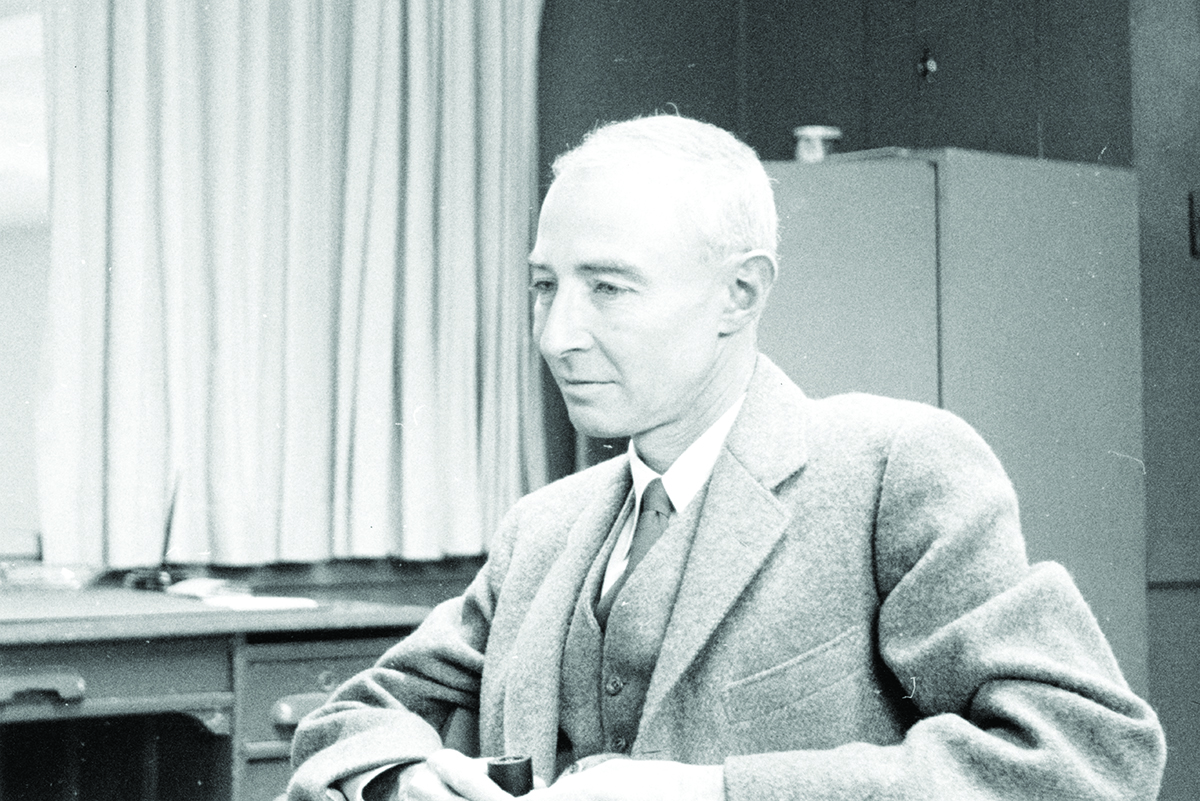How he wound up at Exeter, how he spent his week on campus, and the waves his visit created are preserved in letters and newspaper and magazine clippings in the Library of Congress — and in the memories of those Exonians fortunate enough to be enrolled in the fall of 1955.
The nuclear age
The world changed greatly during the decade after the United States dropped atomic bombs on Hiroshima and Nagasaki in Japan. An “iron curtain” of Soviet control fell across Eastern Europe. A three-year war on the Korean Peninsula between communist and pro-democracy forces resulted in stalemate and cost more than 35,000 American lives. A nuclear arms race was on, with the development of the atomic bomb giving way to pursuit of the thermonuclear hydrogen bomb — a weapon a thousand times more powerful than the one that flattened Hiroshima. And in hearing rooms in the U.S. Senate and in the editorial pages of American newspapers, attempts to thwart communism blossomed into a full-blown “red scare” that infected everyday life.
The race for nuclear supremacy and heightened fears about the spread of communism led to Oppenheimer’s undoing.
As the nation’s foremost scientist, and a leading voice in the fledgling Atomic Energy Commission, Oppenheimer was against expanding the nation’s nuclear arsenal. He lobbied to end research into the hydrogen bomb — then referred to as the “Super” — and urged international oversight of nuclear weapons. Those views placed him afoul of hawks in Congress and U.S. military leadership, as well as President Harry Truman, who rejected Oppenheimer’s advice. They also led the FBI to reopen an Oppenheimer file that was started before the war because of his friendships with and connections to communists in academia.
In late 1953, an aide on the congressional committee overseeing nuclear arms sent a letter to the FBI claiming that “more probably than not, J. Robert Oppenheimer is an agent of the Soviet Union.” The resulting uproar prompted the government to conduct a security investigation into Oppenheimer. On June 1, 1954, after 19 days of closed testimony, the inquiry found that Oppenheimer was in fact loyal to his country but that his testimony in the hearings had been “less than candid” and that his views against developing the hydrogen bomb “had an adverse effect on recruitment of scientists and the progress of the scientific effort.”

 Then he came to the heart of his remarks: three “rather troublesome points” that science had wrought.
Then he came to the heart of his remarks: three “rather troublesome points” that science had wrought.